In the vast sweep of human history, certain individuals have emerged whose influence transcends time, geography, and culture. Among them, Prophet Muhammad ﷺ stands unique, not only as the spiritual leader of over 1.9 billion Muslims today but also as a man whose life reshaped the moral, social, and political fabric of the world. Born in 570 CE in the bustling city of Makkah, at a time when the Arabian Peninsula was steeped in tribal conflict, idol worship, and social inequality, he rose to become a beacon of justice, compassion, and truth.
For Muslims, Muhammad ﷺ is far more than a historical figure; he is the final messenger of Allah (God), the Seal of the Prophets, entrusted with delivering the Qur’an “Islam’s holy scripture” to humanity. The Qur’an itself describes him as “a mercy to the worlds” (Qur’an 21:107) and “an excellent example” (Qur’an 33:21), while historical records and authentic hadith portray a man of unmatched integrity, wisdom, and humility.
His mission, spanning just twenty-three years, transformed not only the faith of individuals but also the social systems and ethical codes of entire communities. From advocating for the rights of the poor and marginalized to laying down principles of governance, education, and interfaith coexistence, his influence has echoed through centuries, shaping civilizations from West Africa to Southeast Asia.
Muslims believe he is the final messenger of Allah, sent as a mercy to all creation. The Qur’an describes him as a man of sublime character, a perfect example for believers, and a seal of the prophets, the one who brought the divine message to completion.
Qur’an 21:107
Arabic: ﴿وَمَآ أَرْسَلْنَـٰكَ إِلَّا رَحْمَةً لِّلْعَـٰلَمِينَ﴾
Transliteration: Wa mā arsalnāka illā raḥmatan lil-‘ālamīn.
Translation: “And We have not sent you, [O Muhammad], except as a mercy to the worlds.”
This blog will explore the life, character, and legacy of Prophet Muhammad ﷺ, weaving together Qur’anic verses in Arabic with transliteration and translation, authentic sayings from hadith collections, and historical context. By the end, you’ll see why he is often called “The Man Who Changed History” and why his message continues to inspire hearts and minds in the modern world.
Early Life – The Trustworthy One
The story of Prophet Muhammad ﷺ begins in 570 CE, a year known in Arabian history as the Year of the Elephant (‘Ām al-Fīl), when an army led by the Abyssinian ruler Abraha attempted to attack the Ka‘bah in Makkah but was miraculously defeated (Qur’an 105:1–5). Born into the noble Banu Hāshim clan of the Quraysh tribe, Muhammad ﷺ entered the world already marked by loss of his father, ‘Abdullāh, had passed away before his birth.
His mother, Aminah bint Wahb, cared for him during his earliest years, but when he was only six, she too passed away. Orphaned, he came under the guardianship of his grandfather, ‘Abd al-Muṭṭalib, and later his uncle, Abū Ṭālib. Despite the hardship of losing both parents, the young Muhammad ﷺ was known for his quiet strength, thoughtfulness, and dignified nature.
As he grew, he worked as a shepherd and later engaged in trade, gaining firsthand experience of honesty, responsibility, and the value of hard work. His integrity in business dealings became so well known that the people of Makkah gave him the honorific title al-Amīn (الأمين) – “The Trustworthy”. He was entrusted with safeguarding valuables, settling disputes, and conducting transactions, even by those who would later oppose his prophetic mission.
His reputation for fairness and truthfulness was so deeply ingrained that when the Quraysh rebuilt the Ka‘bah, a dispute broke out over who should have the honor of placing the sacred Black Stone (al-Ḥajar al-Aswad) in its position. The elders agreed that the next man to enter the sanctuary would decide. That man was Muhammad ﷺ. With wisdom, he placed the stone on a cloth and had each tribal leader hold a corner, lifting it together before he positioned it himself, a decision that satisfied all sides and prevented bloodshed.
This period of his life reflects an important truth: before being known as the Messenger of Allah, Muhammad ﷺ was already a model of honesty, justice, and moral excellence. His later role as a prophet was built upon this foundation of unwavering trustworthiness.
The First Revelation – A Divine Calling
By the time Prophet Muhammad ﷺ reached the age of 40, he had become deeply reflective, often retreating to the Cave of Ḥirā’ on the mountain of Jabal al-Nūr (Mountain of Light) just outside Makkah. In a society steeped in idol worship, tribal rivalry, and moral corruption, these moments of solitude allowed him to meditate on life, creation, and the signs of the Creator.
It was during one of these retreats in the month of Ramaḍān that his life and the course of human history changed forever. Suddenly, the angel Jibrīl (Gabriel) appeared and commanded him with a single word:
Qur’an 96:1-5
Arabic: ﴿ٱقْرَأْ بِٱسْمِ رَبِّكَ ٱلَّذِى خَلَقَ ﴾
Transliteration: Iqra’ bismi rabbika alladhī khalaq
Translation: “Recite in the name of your Lord who created.”
Shaken and overwhelmed, Muhammad ﷺ replied, “I am not one who can read.” The angel embraced him tightly and repeated the command twice more, until the first verses of the Qur’an were revealed, declaring the greatness of Allah as the Creator and the One who teaches humanity through the gift of knowledge:
Arabic: ﴿خَلَقَ ٱلْإِنسَـٰنَ مِنْ عَلَقٍ ﴾
Khalaqa al-insāna min ‘alaq – “He created man from a clinging clot.”
Arabic: ﴿ٱقْرَأْ وَرَبُّكَ ٱلْأَكْرَمُ ﴾
Iqra’ wa rabbuka al-akram – “Recite, and your Lord is the Most Generous.”
Arabic: ﴿ٱلَّذِى عَلَّمَ بِٱلْقَلَمِ ﴾
Alladhī ‘allama bil-qalam – “Who taught by the pen.”
Arabic: ﴿عَلَّمَ ٱلْإِنسَـٰنَ مَا لَمْ يَعْلَمْ ﴾
Allama al-insāna mā lam ya‘lam – “Taught man that which he knew not.”
Terrified by the experience, he rushed home to his wife, Khadījah (RA), saying, “Cover me, cover me!” She comforted him and reassured him of his goodness, saying: “By Allah, Allah will never disgrace you. You uphold ties of kinship, speak the truth, help the needy, honor your guests, and assist those in hardship.” (Ṣaḥīḥ al-Bukhārī)
Khadījah (RA) then took him to her learned cousin, Waraqah ibn Nawfal, who confirmed that the one who came to him was the same angel who came to Prophet Mūsā (Moses, AS). This marked the beginning of Muhammad ﷺ’s 23-year mission as the final Prophet, a mission to guide humanity to Tawḥīd (belief in the Oneness of Allah) and moral reform.
Qur’anic Portrait of the Prophet ﷺ
The Qur’an speaks about the Prophet ﷺ not just as a messenger, but as a model of compassion, ethics, and perseverance.
An Excellent Example
Qur’an 33:21 – “Certainly there is for you in the Messenger of Allah an excellent example…”
Arabic: ﴿لَّقَدْ كَانَ لَكُمْ فِى رَسُولِ ٱللَّهِ أُسْوَةٌ حَسَنَةٌ﴾
Transliteration: Laqad kāna lakum fī Rasūli Llāhi uswatun ḥasanah.
Sublime Character
Qur’an 68:4 – “And indeed, you are of a tremendous character.”
Arabic: ﴿وَإِنَّكَ لَعَلَىٰ خُلُقٍ عَظِيمٍ﴾
Transliteration: Wa innaka la‘alā khuluqin ‘aẓīm.
Seal of the Prophets
Qur’an 33:40 – “…[He is] the Messenger of Allah and the Seal of the Prophets.”
Arabic: ﴿وَلَـٰكِن رَّسُولَ ٱللَّهِ وَخَاتَمَ ٱلنَّبِيِّۦنَ﴾
Transliteration: Wa khātama n-nabiyyīn.
His Character and Teachings
The Prophet ﷺ’s life embodied the Qur’an’s moral vision. As his wife ‘Ā’ishah (RA) famously said: “His character was the Qur’an.” He himself said:
Arabic: «إِنَّمَا بُعِثْتُ لِأُتَمِّمَ صَالِحَ الأَخْلَاقِ»
Transliteration: Innamā bu‘ithtu li-utammima ṣāliḥa al-akhlāq.
Translation: “I was only sent to perfect righteous character.” – (Musnad Aḥmad 8729)
Some of his most famous teachings include:
- Loving for others what you love for yourself (Bukhārī, Muslim).
- Showing mercy to all creation (Tirmidhī).
- Standing for justice, even against oneself or loved ones.
The Makkan Struggle – Patience in the Face of Persecution
After receiving the first revelation, Prophet Muhammad ﷺ began calling his closest family and friends to Islam in private. His message was simple yet revolutionary: worship Allah alone, abandon idols, uphold justice, and live with compassion and honesty.
At first, only a few accepted, among them his wife Khadījah (RA), his young cousin ‘Alī ibn Abī Ṭālib (RA), his freed servant Zayd ibn Ḥārithah (RA), and his loyal friend Abū Bakr al-Ṣiddīq (RA). But as his call grew, the powerful Quraysh leaders felt threatened. They feared losing their wealth, status, and control over the Ka‘bah’s idol-centered pilgrimage economy.
They mocked him, calling him a poet, a madman, or a magician. They tried to bribe him with wealth and kingship in exchange for abandoning his message, but he firmly replied:
Hadith (Musnad Ahmad): “By Allah, if they were to place the sun in my right hand and the moon in my left on the condition that I abandon this matter, I would not abandon it until Allah makes it prevail or I perish because of it.”
When ridicule failed, the Quraysh turned to persecution. Muslims were beaten, tortured, and socially boycotted. The weak and poor suffered the most, Bilāl ibn Rabāḥ (RA), a former slave, was dragged on the hot sands of Makkah with a heavy stone on his chest, yet he kept repeating “Aḥad! Aḥad!” (One! One!) declaring the Oneness of Allah.
In the face of this cruelty, the Prophet ﷺ displayed unmatched patience. The Qur’an revealed during this period offered comfort and reassurance, reminding believers that victory comes to those who remain steadfast:
Qur’an 94:5-6
Arabic: ﴿ فَإِنَّ مَعَ ٱلْعُسْرِ يُسْرًا إِنَّ مَعَ ٱلْعُسْرِ يُسْرًا ﴾
Transliteration: Fa-inna ma‘a al-‘usri yusrā, inna ma‘a al-‘usri yusrā
Translation: “Indeed, with hardship comes ease. Indeed, with hardship comes ease.”
Despite the hostility, the Prophet ﷺ never compromised his principles. He continued to preach with gentleness, embodying the Qur’anic command:
Qur’an 16:125
Arabic: ﴿ ٱدْعُ إِلَىٰ سَبِيلِ رَبِّكَ بِٱلْحِكْمَةِ وَٱلْمَوْعِظَةِ ٱلْحَسَنَةِ ﴾
Transliteration: Ud‘u ilā sabīli rabbika bil-ḥikmati wal-maw‘iẓati al-ḥasanah
Translation: “Invite to the way of your Lord with wisdom and good instruction.”
This Makkan period lasting 13 years, was defined by struggle, patience, and moral strength. It laid the foundation for the eventual migration (Hijrah) to Madinah, where the message of Islam would flourish openly.
The Hijrah – A New Beginning
By the thirteenth year of his mission, the situation in Makkah had reached a breaking point. The Quraysh leaders had intensified their persecution, and many Muslims were living under constant threat. Meanwhile, Islam’s message had begun to spread beyond Makkah, especially to the city of Yathrib (later renamed Madinah), where two major tribes, Aws and Khazraj, were weary of constant tribal warfare and were seeking a unifying leader.
Delegations from Yathrib met the Prophet Muhammad ﷺ during the pilgrimage season and pledged their allegiance to Islam in what became known as the Pledge of al-‘Aqabah. They invited him to migrate to their city as a leader and judge. This was not only a refuge for the Muslims but also the start of a new Islamic society built on justice, equality, and faith.
The Quraysh, fearing his escape, plotted to assassinate him. The Qur’an records Allah’s protection:
Qur’an 8:30
Arabic: ﴿ وَإِذْ يَمْكُرُ بِكَ ٱلَّذِينَ كَفَرُوا۟ لِيُثْبِتُوكَ أَوْ يَقْتُلُوكَ أَوْ يُخْرِجُوكَ ۚ وَيَمْكُرُونَ وَيَمْكُرُ ٱللَّهُ ۖ وَٱللَّهُ خَيْرُ ٱلْمَـٰكِرِينَ ﴾
Transliteration: Wa idh yamkuru bika alladhīna kafarū liyuth’bitūka aw yaqtulūka aw yukh’rijūka, wa yamkurūna wa yamkuru Allāh, wallāhu khayru al-mākirīn
Translation: “And [remember] when those who disbelieved plotted against you to restrain you, kill you, or expel you. But they plan, and Allah plans, and Allah is the best of planners.”
One night, the Prophet ﷺ asked ‘Alī ibn Abī Ṭālib (RA) to sleep in his bed as a decoy while he slipped away with Abū Bakr al-Ṣiddīq (RA). Pursued by the Quraysh, they took refuge in the Cave of Thawr. When the enemy reached its entrance, Abu Bakr (RA) feared they would be discovered, but the Prophet ﷺ reassured him:
Qur’an 9:40
Arabic: ﴿ لَا تَحْزَنْ إِنَّ ٱللَّهَ مَعَنَا ﴾
Transliteration: Lā taḥzan inna Allāha ma‘anā
Translation: “Do not grieve; indeed Allah is with us.”
Miraculously, Allah protected them, and after several days they continued their journey to Madinah, where they were welcomed with joy and love. The Hijrah marked the start of the Islamic calendar and the birth of the first Muslim community, a society based on mutual respect, religious freedom, and moral governance.
This migration was not an escape but a strategic turning point, transforming Islam from a small persecuted movement into a global force for justice and faith.
The Madinan Era – Building a Model Society
Upon arriving in Madinah, Prophet Muhammad ﷺ was greeted with songs of joy and respect. The city became a safe haven where Islam could be practiced freely and openly. The Prophet’s first act was to build the Masjid al-Nabawī (Prophet’s Mosque), which served not only as a place of worship but also as a community center, court, and school for the new Muslim society.
The Constitution of Madinah
One of the Prophet’s ﷺ greatest political achievements was drafting the Constitution of Madinah (Ṣaḥīfat al-Madīnah). This groundbreaking charter united Muslims, Jews, and other communities under a single political framework, guaranteeing:
- Religious freedom for all groups
- Mutual defense against external threats
- Justice based on mutual consultation and fairness
This was an early example of pluralistic governance and social harmony, centuries ahead of its time.
Brotherhood Between Muhājirīn and Anṣār
To strengthen the community, the Prophet ﷺ established a system of brotherhood between the Muhājirīn (emigrants from Makkah) and the Anṣār (helpers from Madinah). This bond was so deep that they shared their homes, wealth, and livelihoods with one another, setting an example of unity and selflessness.
Qur’an 59:9
Arabic: ﴿ وَيُؤْثِرُونَ عَلَىٰٓ أَنفُسِهِمْ وَلَوْ كَانَ بِهِمْ خَصَاصَةٌ ﴾
Transliteration: Wa yu’thirūna ‘alā anfusihim walaw kāna bihim khaṣāṣah
Translation: “They give [others] preference over themselves, even though they are in poverty.”
Defending the Muslim Community
During the Madinan era, the Muslim community faced several military threats from the Quraysh and other hostile tribes. Notable events included:
- The Battle of Badr (624 CE): A decisive Muslim victory despite being outnumbered.
- The Battle of Uhud (625 CE): A difficult test after initial success, teaching lessons about discipline and obedience.
- The Battle of the Trench (627 CE): A defensive strategy that saved Madinah from a massive siege.
In all these events, the Prophet ﷺ emphasized that warfare in Islam is defensive in nature, guided by strict moral conduct, prohibiting harm to civilians, crops, and animals.
Treaty of Hudaybiyyah
In 628 CE, the Prophet ﷺ entered into the Treaty of Hudaybiyyah with the Quraysh. Although it seemed unfavorable at first, it opened the door for peaceful propagation of Islam, leading to a surge in conversions. This moment reflects the Qur’anic principle:
Qur’an 48:1
Arabic: ﴿ إِنَّا فَتَحْنَا لَكَ فَتْحًا مُّبِينًا ﴾
Transliteration: Innā fataḥnā laka fatḥan mubīnā
Translation: “Indeed, We have granted you a clear conquest.”
The Madinan era demonstrated the Prophet’s ﷺ qualities as a statesman, military leader, and moral guide, showing that Islam is not only a religion of personal piety but also a complete system for building a just and peaceful society.
Victory with Mercy – The Conquest of Makkah
By the eighth year after the Hijrah (630 CE), the Quraysh had violated the Treaty of Hudaybiyyah by supporting an attack against one of the Prophet’s ﷺ allies. This breach of agreement led to one of the most decisive moments in Islamic history i.e. the Conquest of Makkah.
The Prophet ﷺ marched towards Makkah with an army of 10,000 believers, but without the intention of bloodshed. His goal was to restore the sanctity of the Ka‘bah and remove the idols that had corrupted its worship. The Qur’an had described the Ka‘bah as a house established for the worship of Allah alone:
Qur’an 3:96
Arabic: ﴿ إِنَّ أَوَّلَ بَيْتٍ وُضِعَ لِلنَّاسِ لَلَّذِي بِبَكَّةَ مُبَارَكًا ﴾
Transliteration: Inna awwala baytin wuḍi‘a lil-nāsi lallaḏī bibakkata mubārakan
Translation: “Indeed, the first House [of worship] established for mankind was that at Bakkah – blessed…”
When the Muslim army entered Makkah, there was almost no resistance. Instead of seeking revenge against those who had persecuted him and his followers for years, the Prophet ﷺ proclaimed a general amnesty. Standing by the Ka‘bah, he addressed the Quraysh:
Hadith (Sunan al-Kubrā al-Bayhaqī) – “Go, for you are free.” (Idhhabū fa-antum al-ṭulaqāʾ)
This act of unparalleled forgiveness won over many hearts, leading to a mass acceptance of Islam. The Prophet ﷺ personally oversaw the removal of 360 idols from around the Ka‘bah, reciting:
Qur’an 17:81
Arabic: ﴿ وَقُلْ جَاءَ ٱلْحَقُّ وَزَهَقَ ٱلْبَـٰطِلُ ۚ إِنَّ ٱلْبَـٰطِلَ كَانَ زَهُوقًا ﴾
Transliteration: Wa qul jāʾa al-ḥaqqu wa zahaqa al-bāṭil, inna al-bāṭila kāna zahūqā
Translation: “And say: Truth has come, and falsehood has vanished. Indeed, falsehood is bound to vanish.”
The Conquest of Makkah was not just a military victory, it was a moral one. By showing mercy instead of vengeance, Prophet Muhammad ﷺ demonstrated the highest standard of leadership and fulfilled his mission of restoring the Ka‘bah to the worship of Allah alone.
The Farewell Sermon – Final Message
In the tenth year after the Hijrah (632 CE), Prophet Muhammad ﷺ performed his first and only Hajj after the migration. More than 100,000 Muslims gathered with him on the plains of ‘Arafah, where he delivered a message that would serve as the moral constitution for all humanity, known as Khutbat al-Wadāʿ (The Farewell Sermon).
The Prophet ﷺ began by praising Allah and reminding the people of the sanctity of life, property, and honor:
Hadith (Sahih al-Bukhari & Muslim) – “Indeed, your blood, your property, and your honor are sacred to you, like the sanctity of this day, in this month, in this city.”
He abolished all forms of injustice rooted in pre-Islamic ignorance (Jāhiliyyah), including usury (ribā), and emphasized the rights of women, urging men to treat them with kindness. He declared that all humans are equal in the sight of Allah:
Hadith (Musnad Ahmad) – “No Arab is superior to a non-Arab, and no non-Arab is superior to an Arab; no white person is superior to a black person, and no black person is superior to a white person, except by piety.”
During the sermon, Allah revealed the verse announcing the completion of the religion:
Qur’an 5:3
Arabic: ﴿ ٱلْيَوْمَ أَكْمَلْتُ لَكُمْ دِينَكُمْ وَأَتْمَمْتُ عَلَيْكُمْ نِعْمَتِى وَرَضِيتُ لَكُمُ ٱلْإِسْلَـٰمَ دِينًا ﴾
Transliteration: Al-yawma akmaltu lakum dīnakum wa atmamtu ‘alaykum ni‘matī wa raḍītu lakumu al-islāma dīnā
Translation: “Today I have perfected for you your religion, completed My favor upon you, and have chosen for you Islam as your religion.”
The Prophet ﷺ concluded by asking the gathered crowd:
“Have I conveyed the message?”
The crowd responded: “Yes!”
He then raised his finger to the sky and said three times:
“O Allah, bear witness! O Allah, bear witness! O Allah, bear witness!”
This sermon encapsulated the mission of Islam, a message of justice, equality, and submission to the will of Allah, leaving no doubt that the Prophet ﷺ had fulfilled his duty as the final Messenger.
Passing, Legacy and the end of Prophet-hood
Shortly after returning from the Farewell Pilgrimage, the Prophet Muhammad ﷺ fell ill. For several days, he endured severe fever and weakness, yet he continued to lead prayers and advise his companions whenever possible. His final days were marked by concern for the Ummah, urging them to uphold prayer, treat one another with kindness, and remain steadfast in faith.
During his illness, he appointed Abu Bakr al-Ṣiddīq (RA) to lead the congregational prayers, signaling his choice for leadership after his passing. On the morning of 12th Rabi‘ al-Awwal, 11 AH (June 8, 632 CE), the Prophet ﷺ lifted the curtain of his room and smiled at the companions as they prayed, giving them a final moment of comfort.
A few hours later, resting in the arms of his beloved wife ‘Ā’ishah (RA), he whispered:
Hadith (Sahih al-Bukhari) – “With the highest companion (ar-Rafīq al-A‘lā).”
With that, his blessed soul departed to meet his Lord
The Shock and Grief of the Ummah
The news of his passing sent shockwaves through Madinah. Many companions, including ‘Umar ibn al-Khaṭṭāb (RA), could not accept it at first. Abu Bakr (RA) calmed the people with words that still resonate today:
Qur’an 3:144
Arabic: ﴿ وَمَا مُحَمَّدٌ إِلَّا رَسُولٌ ۚ قَدْ خَلَتْ مِن قَبْلِهِ ٱلرُّسُلُ ۚ أَفَإِيْن مَّاتَ أَوْ قُتِلَ ٱنقَلَبْتُمْ عَلَىٰٓ أَعْقَـٰبِكُمْ ۚ ﴾
Transliteration: Wa mā Muḥammadun illā rasūl, qad khalat min qablihi al-rusul, afa-in māta aw qutila inqalabtum ‘alā a‘qābikum
Translation: “Muhammad is no more than a messenger; messengers have passed away before him. If he dies or is killed, will you turn back on your heels?”
The Prophet ﷺ was buried in the very chamber where he passed away, now part of Al-Masjid an-Nabawi in Madinah. His passing marked the end of prophethood, but his legacy as the final Messenger of Allah continues to guide over a billion people around the world.
The Qur’an assures us of this finality:
Qur’an 33:40
Arabic: ﴿ مَّا كَانَ مُحَمَّدٌ أَبَآ أَحَدٍۢ مِّن رِّجَالِكُمْ وَلَـٰكِن رَّسُولَ ٱللَّهِ وَخَاتَمَ ٱلنَّبِيِّـۧنَ ۗ ﴾
Transliteration: Mā kāna Muḥammadun abā aḥadin min rijālikum walākin rasūlallāhi wa khātama al-nabiyyīn
Translation: “Muhammad is not the father of any of your men, but he is the Messenger of Allah and the seal of the prophets.”
Though the Prophet ﷺ departed this world, his teachings, character, and example remain alive in the hearts of the believers, a mercy to the worlds for all time.
Conclusion: The Legacy of the Final Messenger ﷺ
The life of Prophet Muhammad ﷺ is not just a historical account; it is a living guide for humanity. From his humble beginnings as Al-Amīn (the Trustworthy One) in Makkah to his role as a statesman, teacher, and reformer in Madinah, every stage of his life demonstrates unwavering devotion to Allah, mercy to creation, and dedication to justice.
He was a man who changed the course of history, not through wealth, force, or political maneuvering, but through truth, patience, and compassion. His leadership united warring tribes, abolished deep-rooted injustices, and established a moral code that continues to inspire over a billion people today.
As Allah reminds us:
Qur’an 33:21
Arabic: ﴿ لَّقَدْ كَانَ لَكُمْ فِى رَسُولِ ٱللَّهِ أُسْوَةٌ حَسَنَةٌ لِّمَن كَانَ يَرْجُوا۟ ٱللَّهَ وَٱلْيَوْمَ ٱلْـَٔاخِرَ وَذَكَرَ ٱللَّهَ كَثِيرًۭا ﴾
Transliteration: Laqad kāna lakum fī rasūlillāhi uswatun ḥasanatun liman kāna yarjūllāha wal-yawma al-ākhira wa dhakara Allāha kathīrā
Translation: “Indeed, in the Messenger of Allah you have an excellent example for whoever hopes in Allah and the Last Day, and remembers Allah often.”
The Prophet ﷺ left us with a complete way of life “Islam” and a promise that if we hold firmly to the Qur’an and his Sunnah, we will never go astray. His message is timeless: faith, justice, mercy, and unity.
Today, the world still needs the example of Muhammad ﷺ, a leader who forgave his enemies, loved his followers, and lived with humility despite having the power to rule. It is now upon us to study his life, follow his teachings, and embody his character so that his light continues to shine in every generation.
“Convey from me, even if it is one verse.” – Hadith (Sahih al-Bukhari)
*If you found this article beneficial, please share it with others so they too can gain clarity on this important topic in Islam.

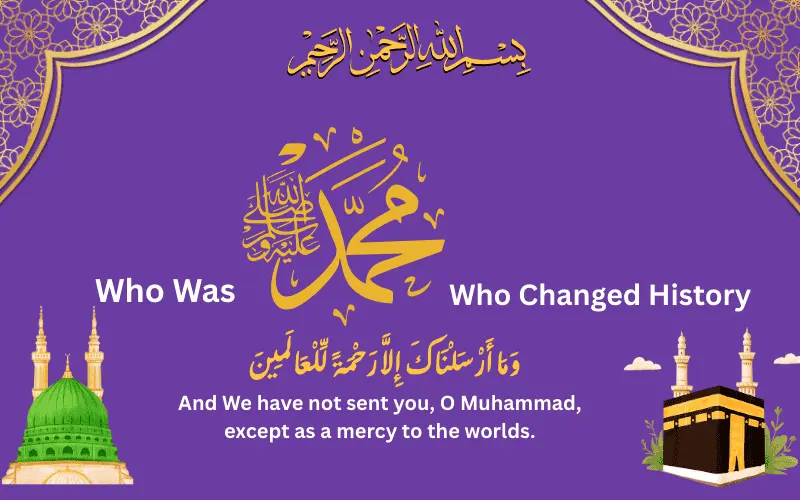
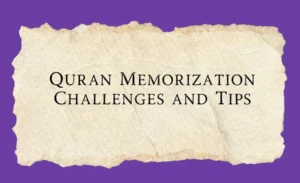
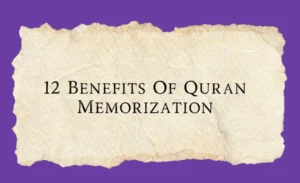
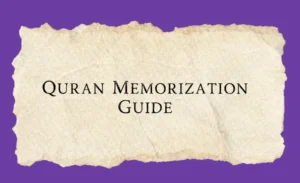
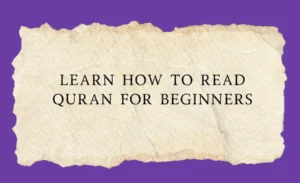

2 Responses